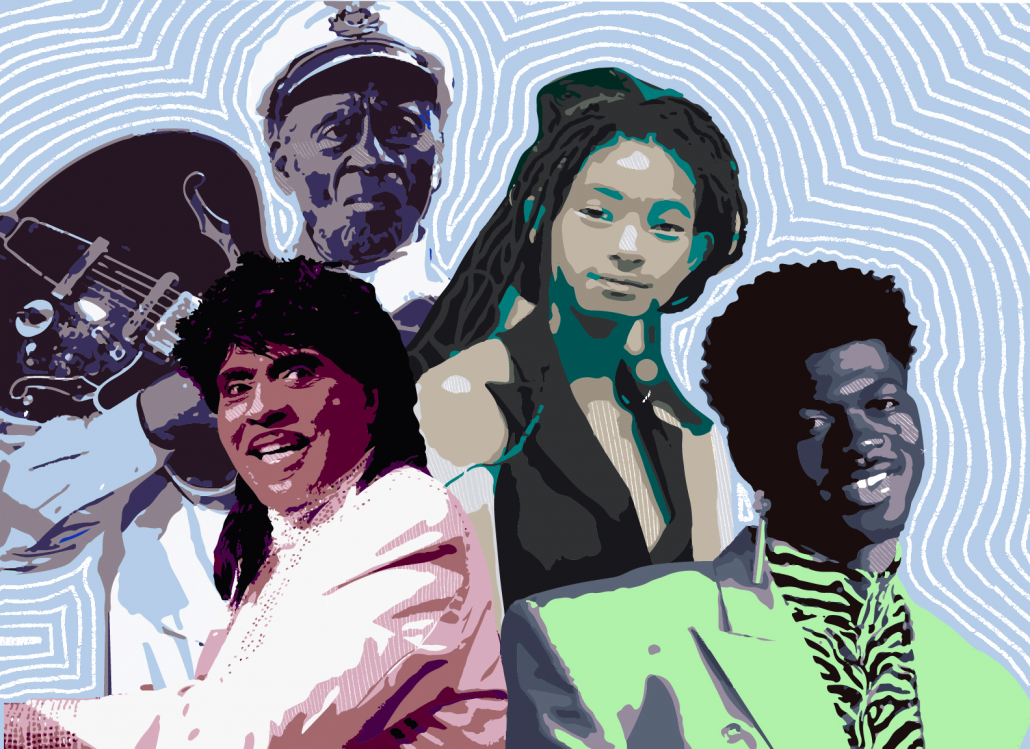Hustle and Fro: It’s not white people music

As a lover of all music — and yes, that includes country — I was really excited when I first heard Willow Smith’s pop-punk song, “Transparent Soul,” the other day. It’s not often you see young Black women in punk and rock genres … or is it?
Nowadays in the music space, people associate rhythm and blues and rap genres as being the basis of Black music. But, in reality, they’re completely disregarding the impact Black musicians have made on music in its entirety. In many cases, people don’t even mention Black artists in genres like country and rock. So, in honor of Black Music Month, now’s a great time to talk about exactly why this is.
Let’s start with one of my favorite examples, “Old Town Road” by Lil Nas X. After the song was first released back in 2018, it debuted at number 19 on Billboard’s Hot Country Songs and then was quickly relocated to the Hot Rap Songs chart.
Though the song incorporated everything from a banjo-laced beat to lyrics about horses, boots and tractors, it just wasn’t country enough, as explained by a Billboard representative to Rolling Stone.
“While ‘Old Town Road’ incorporates references to country and cowboy imagery, it does not embrace enough elements of today’s country music to chart in its current version,” the representative said.
While some thought race had played a role in it (see: tweet from Ski Mask The Slump God), it doesn’t seem far off, especially when so many Black artists are allocated to rap and R&B. It’s crazy to think that, in a genre paved by Black musicians, country music is so white-centric now that many blamed discrimination for “Old Town Road”‘s removal from the country charts.
Country music was born from genres that Black people created, like religious hymns and blues. But in many cases, as country music gained popularity, Black people weren’t credited for songwriting or in musical covers, and white artists graced posters and album covers instead. And funnily enough, country stars like Hank Williams and Johnny Cash were mentored by Black musicians like Rufus “Tee Tot” Payne and Gustavus “Gus” Cannon.
This pattern isn’t only true for country music either — it can also be seen in the rock and roll music realm. Black progenitors of the genre like Little Richard, Chuck Berry and Sister Rosetta Tharpe each made great strides in the creation of rock and roll.
But, just like the aforementioned country artists, the white artists that were inspired by Black originators got significantly more recognition. Back in the 1950s, white pop singer Pat Boone covered three of Black rock and roll singer Little Richard’s songs, like “Tutti Frutti,” and was met with substantially higher levels of success.
This, unfortunately, was extremely common across the music industry. When The Beach Boys recorded “Surfin’ U.S.A.,” it was note for note Chuck Berry’s “Sweet Little Sixteen” with new lyrics. While “Surfin’ U.S.A.” became an instant classic, Berry’s music isn’t currently as recognizable. Berry got songwriting credit for The Beach Boys hit but not before legal action was taken.
Black artists have historically been cast out of the genres that they originated and popularized, so much so that country and rock are socially considered white.
Fast forward about 70 years, Black artists are seeing a ton of success in the genres that worked so hard to erase them out of. Willow Smith’s “Transparent Soul,” the song that instantly piqued my interest in all of this, features blink-182’s Travis Barker and has ushered Smith into her new musical era of punk and rock music.
Following in her mother’s footsteps as a rock artist — Jada Pinkett Smith was the lead singer of the nu-metal band “Wicked Wisdom” — Willow recognizes the discrimination that her mom faced in the rock music space and explains in an interview with W Magazine that she was still willing to give it a try.
“A lot of people weren’t happy about seeing a Black woman in that space. I saw her [Jada Pinkett Smith] gracefully do her thing while so many people were being racist and sexist and just not being nice,” Smith said. “I never thought I could do rock music, because I was trained since I was 8 to sing R&B. Then I was just like, You know what? Eff it.”
With more Black country artists on the scene like Jimmie Allen, who was recently met with a standing ovation by Garth Brooks while honoring him at the Kennedy Center Honors, as well as Black rock artists like the Black woman fronted band Alabama Shakes, who’ve won multiple Grammys for rock and alternative music, it’s pretty safe to say that the future of these genres is in good hands. I look forward to the day where music better reflects its Black roots in history and Black artists aren’t left fighting for a rightful spot. So for now I simply say, it’s not “white people music.”
Marlize Duncan is a rising junior writing about Black social issues and their intersection in the entertainment industry.

